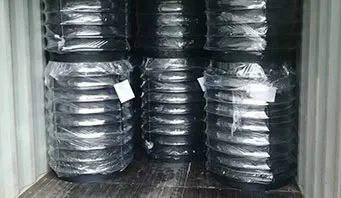
Nov . 06, 2024 18:40 Back to list
Effective Chemical Treatments for Hot Water Boiler Systems Maintenance and Efficiency
The Importance of Chemical Treatment in Hot Water Boilers
Hot water boilers are essential components in many industrial and commercial settings, providing heated water for a variety of applications, from heating systems to sanitation processes. However, to ensure that these boilers operate efficiently and have a long service life, proper chemical treatment is crucial. This article will explore the importance of chemical treatment in hot water boilers, the common types of treatments used, and their benefits.
Understanding the Need for Chemical Treatment
Hot water boilers operate under high temperatures and pressures, which can cause a variety of issues if not managed correctly. One of the primary concerns is the accumulation of scale and deposits in the boiler. Scale is formed when minerals, such as calcium and magnesium, precipitate from hard water and settle on the heating surfaces. This buildup can significantly reduce thermal efficiency, leading to increased fuel consumption and higher operating costs.
Moreover, corrosion is another major threat to the integrity of hot water boilers. Water typically contains dissolved oxygen and other corrosive agents that can cause rust and degradation of metal components over time. If left unaddressed, corrosion can lead to leaks, system failures, and costly repairs.
Common Types of Chemical Treatments
To combat these issues, various chemical treatments are employed in hot water boilers
1. Scale Inhibitors These chemicals are designed to prevent the formation of scale by interfering with the crystallization process of minerals in the water. They help keep the minerals suspended in the water, thus preventing them from depositing on boiler surfaces.
2. Corrosion Inhibitors These agents are added to the water to create a protective film on the metal surfaces of the boiler. This film acts as a barrier, reducing the contact between the metal and corrosive substances present in the water, therefore minimizing corrosion.
hot water boiler chemical treatment

3. pH Adjusters Maintaining the proper pH level of the boiler water is critical for preventing corrosion and scaling. pH adjusters, such as sodium hydroxide or acetic acid, can be used to keep the water within an optimal pH range, typically between 7 and 9.
4. Biocides In systems where biological growth can occur, such as algae or bacteria, biocides may be necessary to eliminate these organisms that can disrupt heat transfer and lead to fouling of the system.
Benefits of Chemical Treatment
The implementation of chemical treatment programs in hot water boilers offers numerous benefits
- Efficiency Improvement By preventing scale and corrosion, chemical treatments help ensure that the boiler operates at peak efficiency. This can lead to lower energy costs and improved performance.
- Extended Equipment Life Regular chemical treatment extends the lifespan of the boiler, reducing the frequency of repairs and the need for premature replacement. This not only saves money but also minimizes downtime associated with system failures.
- Reduced Maintenance Costs With proper chemical treatment, the need for extensive cleaning and maintenance is significantly reduced. This can free up resources and time for maintenance personnel, allowing them to focus on other critical tasks.
Conclusion
In summary, the chemical treatment of hot water boilers is a vital practice that contributes to their efficiency, longevity, and overall reliability. By using appropriate scale inhibitors, corrosion inhibitors, pH adjusters, and biocides, operators can tackle the challenges posed by scale formation and corrosion. Investing in a comprehensive chemical treatment program is not just a good practice; it is essential for the smooth operation of hot water boilers in any industrial or commercial setting.
-
High-Efficiency Commercial Oil Fired Steam Boiler for Industry
NewsJul.30,2025
-
High-Efficiency Biomass Fired Thermal Oil Boiler Solutions
NewsJul.30,2025
-
High Efficiency Gas Fired Thermal Oil Boiler for Industrial Heating
NewsJul.29,2025
-
High-Efficiency Gas Fired Hot Water Boiler for Sale – Reliable & Affordable
NewsJul.29,2025
-
High Efficiency Biomass Fired Hot Water Boiler for Industrial and Commercial Use
NewsJul.29,2025
-
High-Efficiency Biomass Fired Hot Water Boiler for Industrial Use
NewsJul.28,2025
Related PRODUCTS






















